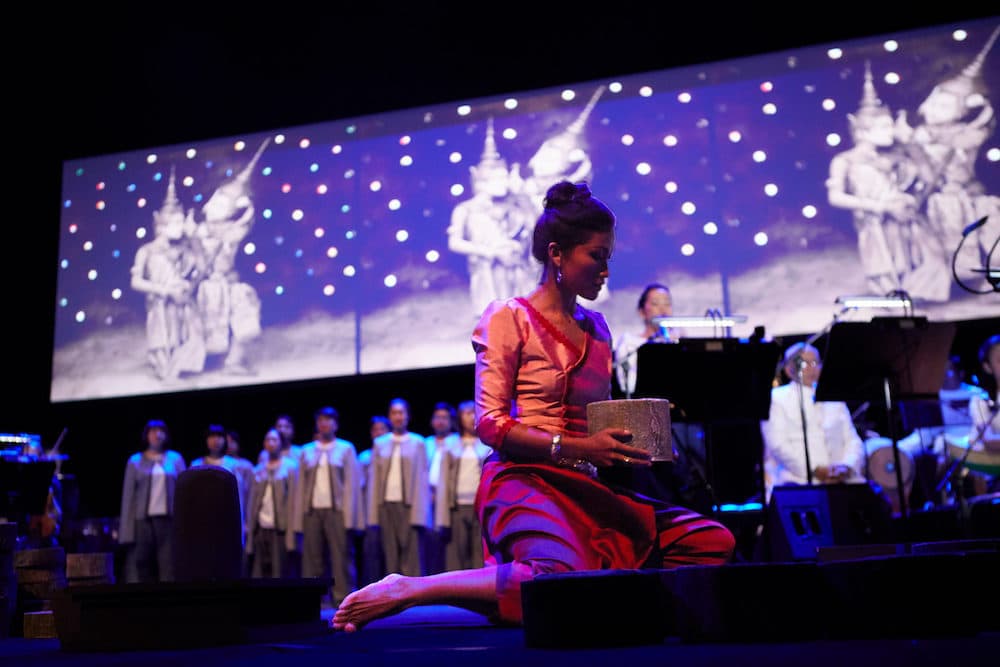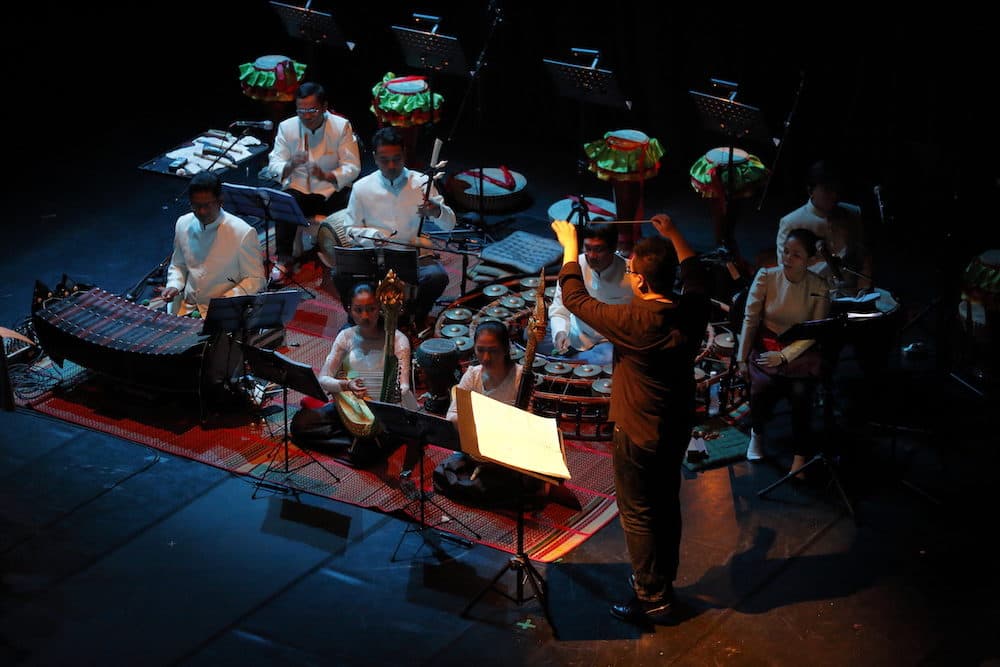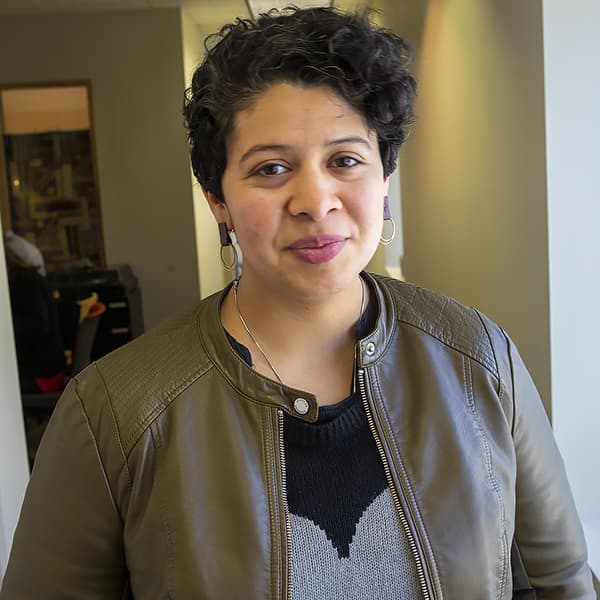Advertisement
A Cambodia Healing Festival Has Particular Resonance During A Year Of Loss

2020 has been a year where more than a million people have died.
Many were isolated in hospital beds, communicating with loved ones through a screen during their final moments. Decades ago, in the killing fields of Cambodia during the late 1970s, a different wave of death took place as the Khmer Rouge oversaw the genocide of millions.
Death became a familiar spectre for that nation, and this year — for the world. We as humans grasp for our rituals, seeking to make sense of loss and attempting to mourn together while separate.
“It’s just basic human need,” said Phloeun Prim, executive director for Cambodian Living Arts.
In a partnership between ArtsEmerson and Cambodian Living Arts, a two-week series of digital events that begins Friday will offer a space for collective catharsis called Arts & Healing: Bangsokol Virtual Festival.
In Cambodia, Bangsokol is a Buddhist ceremony held after someone passes away. A white shroud is placed over the body and then removed to represent the transmigration of the spirit. This ritual served as inspiration and the cornerstone of Cambodian Living Arts’ stage production “Bangsokol: A Requiem for Cambodia,” which will be screened online during the festival and examined through talks and discussions.
The program is a multi-disciplinary production of music, film, movement and voice, which incorporates a five-movement liturgical narrative using a collection of texts in the sacred Pali language for funerals and memorial rites. It’s an opportunity to reimagine the last rites of those who never received them, to witness and release those souls that were left behind to wander.
“We want to create a collective healing experience,” said curator Jean-Baptiste Phou. “We’re all experiencing hard times, no matter what our context. When you read the news it seems it’s chaos everywhere. We so desperately need healing and reconciliation right now.”

First debuted live in 2017, the performance uses traditional Khmer instruments together with The Metropolis Ensemble orchestra and the Taipei Philharmonic Chamber Choir. Archival footage of war is included to remember those killed under the Khmer Rouge’s regime and tell the country’s story over the last decades. Both Oscar-nominated director Rithy Panh and composer Him Sophy are part of this project. Both are also survivors of the Khmer Rouge.
For this year’s online festival, five international music ensembles were commissioned. Each took on a musical movement from the original piece and then rearranged it or composed something new with the theme of what healing means or looks like to them.
“It’s always been about focusing on the human experience rather than the specific, very specific historical background of Cambodia. Of course, that's important ... But it's not the purpose,” Phou said. “We are not historians. We're not journalists. We're not researchers. We are artists. What I want to transmit as an artist, and now as a curator, it's emotion. It's connection. It's for anybody who doesn't have a single clue of what's happening in Cambodia, to still be able to access, to understand, feel and relate.”
The organization Cambodian Living Arts realized early on in the year before Covid-19 arrived in the United States that they would need to adjust. Shows were canceled. Everything stopped except the numbers of dead around the world, which continued to rise.
“But behind those numbers, there are individual souls and stories that should be acknowledged,” Prim said. “In the piece, there's an opening procession and wherever we have performed we begin with a prologue that is essentially the ritual, asking a community member to walk this procession, holding a flower, holding incense, or holding a photo of someone from their family who has died.”
Prim said his parents fled through the jungle with him as a baby to a refugee camp at the border between Cambodia and Thailand. They eventually made their way to Montreal. His journey to healing began when he started rediscovering his roots, his traditions and his identity.
Bangsokol builds to the central rite for the Buddhist dead and prayers for all beings.
“The work never ends because the trauma is carried through us,” he said. “The memory is really important...what we don't want is the next generation to forget.”
